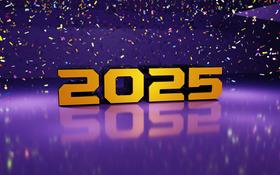For the 2025-26 school year, there are 8 online public elementary schools serving 15,827 students in Indiana.
Indiana online public elementary schools have an average math proficiency score of 12% (versus the Indiana public elementary school average of 41%), and reading proficiency score of 29% (versus the 40% statewide average).
Minority enrollment is 45% of the student body (majority Black), which is more than the Indiana public elementary school average of 37% (majority Hispanic and Black).
Learn more about how online public schools and online high schools work.
Best Online Public Elementary Schools in Indiana (2025-26)
School
(Math and Reading Proficiency)
(Math and Reading Proficiency)
Location
Quick Facts
Rank: #11.
Indiana Connections Academy
Charter School
(Math: 19% | Reading: 39%)
Rank:
Rank:
3/
Bottom 50%10
6640 Intech Blvd - Suite 101
Indianapolis, IN 46278
(317) 550-3188
Indianapolis, IN 46278
(317) 550-3188
Gr: K-12 | 5,475 students Student-teacher ratio: 32:1 Minority enrollment: 26%
Rank: #22.
Indiana Connections Career Academy
Charter School
(Math: 14% | Reading: 37%)
Rank:
Rank:
3/
Bottom 50%10
6640 Intech Boulevard - Ste 10
Indianapolis, IN 46278
(317) 732-7790
Indianapolis, IN 46278
(317) 732-7790
Gr: 6-12 | 724 students Student-teacher ratio: 26:1 Minority enrollment: 28%
Rank: #33.
Options Indiana
Charter School
(Math: ≤5% | Reading: 25-29%)
Rank:
Rank:
2/
Bottom 50%10
18077 River Rd
Noblesville, IN 46062
(765) 621-0832
Noblesville, IN 46062
(765) 621-0832
Gr: 6-12 | 603 students Student-teacher ratio: 22:1 Minority enrollment: 22%
Rank: #44.
Indiana Gateway Digital Academy
(Math: 6% | Reading: 22%)
Rank:
Rank:
1/
Bottom 50%10
200 Ettel Lane
Clarksville, IN 47129
(844) 743-4437
Clarksville, IN 47129
(844) 743-4437
Gr: K-12 | 6,085 students Student-teacher ratio: 30:1 Minority enrollment: 65%
Rank: #55.
Vigo Virtual School Academy
(Math: ≤5% | Reading: 20-24%)
Rank:
Rank:
1/
Bottom 50%10
3707 S 7th
Terre Haute, IN 47802
(812) 462-4216
Terre Haute, IN 47802
(812) 462-4216
Gr: K-12 | 239 students Student-teacher ratio: 17:1 Minority enrollment: 22%
Rank: #66.
Indiana Digital Elementary School
(Math: 8% | Reading: 17%)
Rank:
Rank:
1/
Bottom 50%10
8707 W Hwy Us 36
Modoc, IN 47358
(765) 204-2224
Modoc, IN 47358
(765) 204-2224
Gr: K-6 | 2,119 students Student-teacher ratio: 24:1 Minority enrollment: 39%
Rank: #77.
South Bend Virtual School
(Math: 6-9% | Reading: 10-14%)
Rank:
Rank:
1/
Bottom 50%10
740 North Eddy St
South Bend, IN 46617
(574) 393-6169
South Bend, IN 46617
(574) 393-6169
Gr: K-12 | 293 students Student-teacher ratio: 11:1 Minority enrollment: 71%
Rank: #88.
Phalen Virtual Leadership Academy
Charter School
(Math: 6-9% | Reading: 9%)
Rank:
Rank:
1/
Bottom 50%10
4352 Mitthoeffer Rd
Indianapolis, IN 46235
(317) 939-3787
Indianapolis, IN 46235
(317) 939-3787
Gr: K-12 | 289 students Student-teacher ratio: 3:1 Minority enrollment: 83%
Frequently Asked Questions
How many online public elementary schools are offered in Indiana?
8 online public elementary schools are available for Indiana students.
What is the racial composition of online public elementary schools students in Indiana?
Indiana online public elementary schools minority enrollment is 45% of the student body (majority Black), which is more than the Indiana public elementary schools average of 37% (majority Hispanic and Black).
Recent Articles

Texas Schools Enrollment Trends & Policy in 2025
Latest data and policy changes on Texas public school enrollment growth, funding, and virtual education in 2025.

Financial Aid & Hidden Costs in Public Schools
Learn about financial aid and hidden costs in public schools. Discover what parents should budget for beyond tuition-free education.

NYC Schools Still Most Segregated in 2025
Despite reforms, New York City schools remain the most segregated in the U.S. in 2025. Here鈥檚 what parents and educators need to know.
